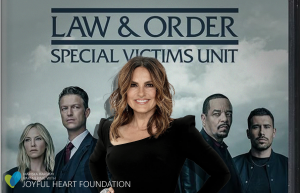45 years ago this month, a new television show debuted “The Man Trap” aired on NBC. Star Trek premiered with this episode, beginning one of the most successful franchises in television history, including five different series, along with 11 movies. To celebrate the 45th anniversary of Star Trek, Voice is taking a look at each series’ pros and cons, and looks to the future for what’s next for the franchise.
Star Trek (1966-1969): The one that started it all, and introduced the world to Kirk, Spock, and Bones. Though the series may seem dated now, with its cheesy aliens and slightly heavy-handed allegories, it still brought space opera to television, creating an incredibly important piece of cultural history that introduced science fiction to millions. However, the show was cancelled after three seasons. The fervor of the fans brought about a film in 1979, which led to the continuation of the franchise.
Fun Fact: The popular phrase “Beam me up, Scotty” was never actually used during the series.
Star Trek: The Next Generation (1987-1994): In terms of ratings, the most popular show of the franchise and the one that franchise creator Gene Roddenberry believed best represented his vision of the future. It was that of a human utopian society with one government on Earth, and alliances with various races. One’s appreciation of the series will depend on how much they believe in this vision. Some may find it believable, others will dismiss it as wishful thinking.
Fun Fact: Patrick Stewart, who played Captain Picard, was apparently sure the show would fail, and therefore did not unpack his suitcases for six weeks after filming began.
Star Trek: Deep Space Nine (1993-1999): To take the franchise in a new direction, producers set the third series on a space station, leading to many recurring characters, and frequently dealing with issues like religion and war. Deep Space Nine differed the most from Roddenberry’s idealistic future of all the shows in the franchise, making it the most polarizing series of the five. It is dark, brooding, and very different from The Next Generation.
Fun Fact: At 176 episodes, Deep Space Nine was the longest-running science fiction series on television, until The X-Files passed it in 2001.
Star Trek: Voyager (1995-2001): One of Starfleet’s ships, the USS Voyager, gets stuck on the other side of the galaxy and the series chronicles its attempts to get back home. What could have been a chance to show many new civilizations and aliens instead suffered from very inconsistent writing, featuring strange character decisions and storylines that were completely dropped for no apparent reason. While it features some excellent episodes, mediocrity is the most common reaction to much of the show.
Fun Fact: Voyager was the first original series broadcast on UPN, and the longest running series on the network.
Star Trek: Enterprise (2001-2005): The final series (so far) to air, Enterprise was a prequel to the original 1960’s series. The show told the story of Starfleet’s first ship and crew, but failed to attract a large audience throughout its run, due to a lack of interesting stories and characters. Ironically, its fourth (and last) season is regarded as the best by fans, as it tied in many storylines to ones that had appeared on the original Star Trek.
Fun Fact: The series finale is widely regarded as one of the worst episodes of any Star Trek, as it featured cameos by two The Next Generation characters who received more airtime than a few of Enterprise’s regulars.
So what’s next? A sequel to 2009’s Star Trek would have been released in June 2012, but it has been delayed, with no known release date. With any luck, it will be out soon enough, and perhaps a new TV series will follow. Star Trek is most successful on television, and a new series would be a welcome return of a fantastic franchise.




